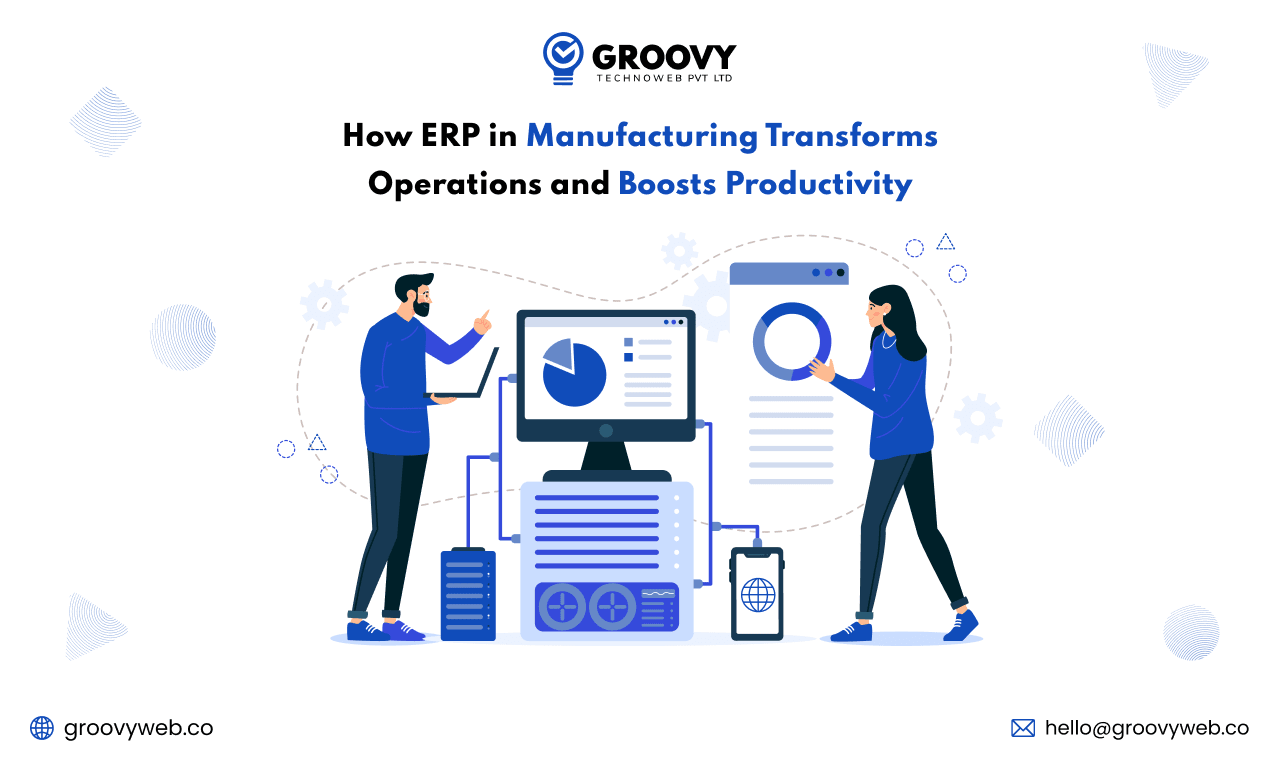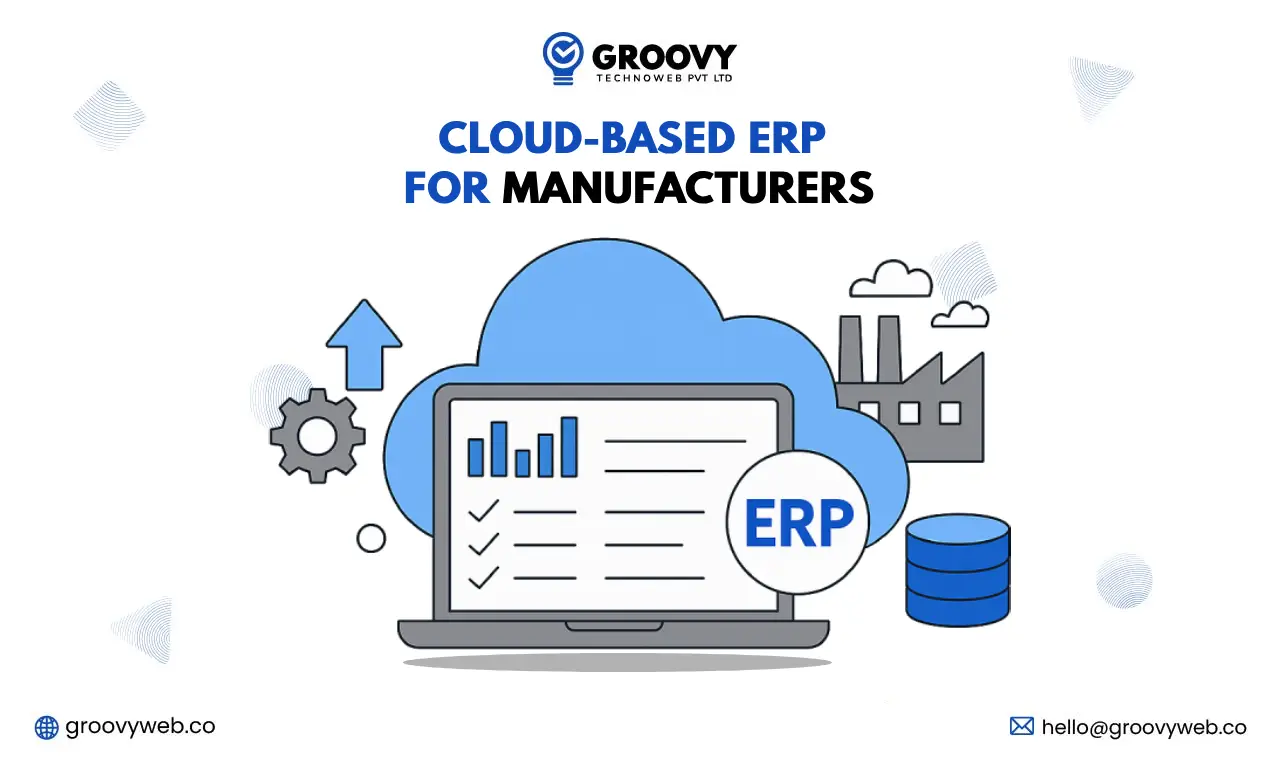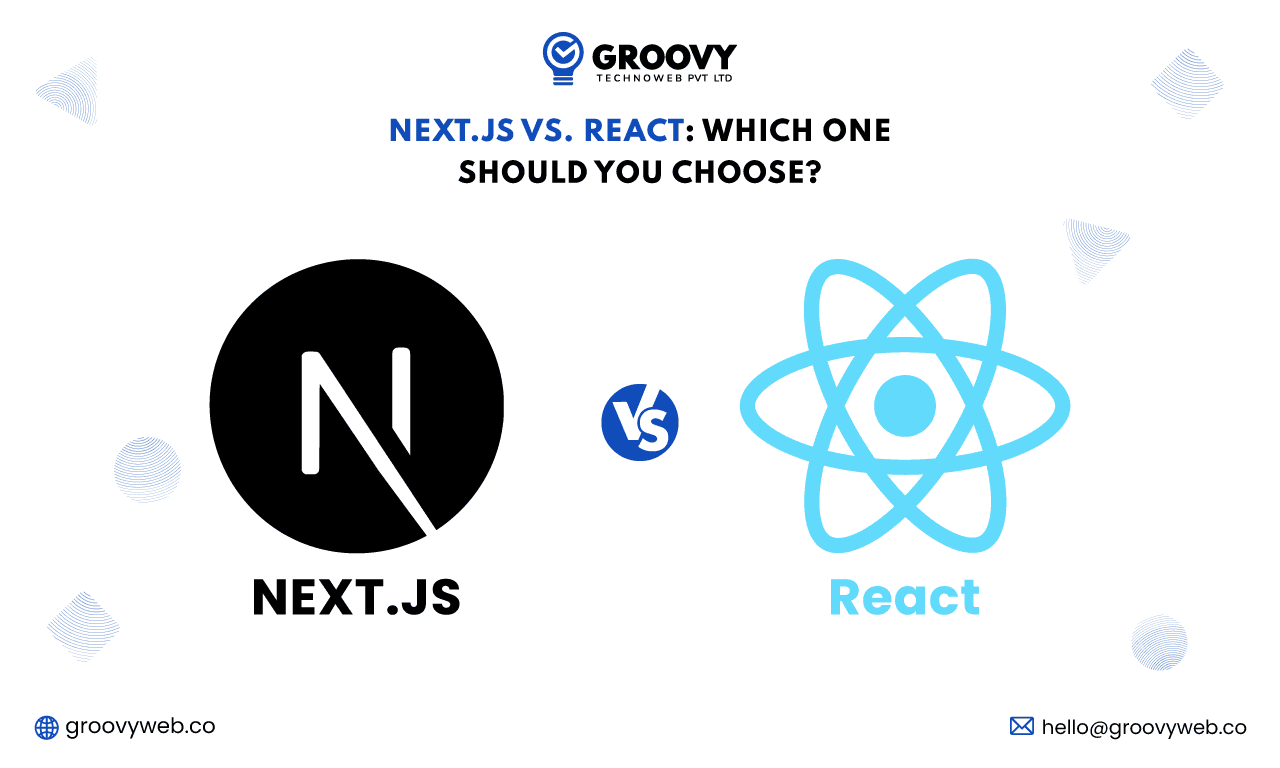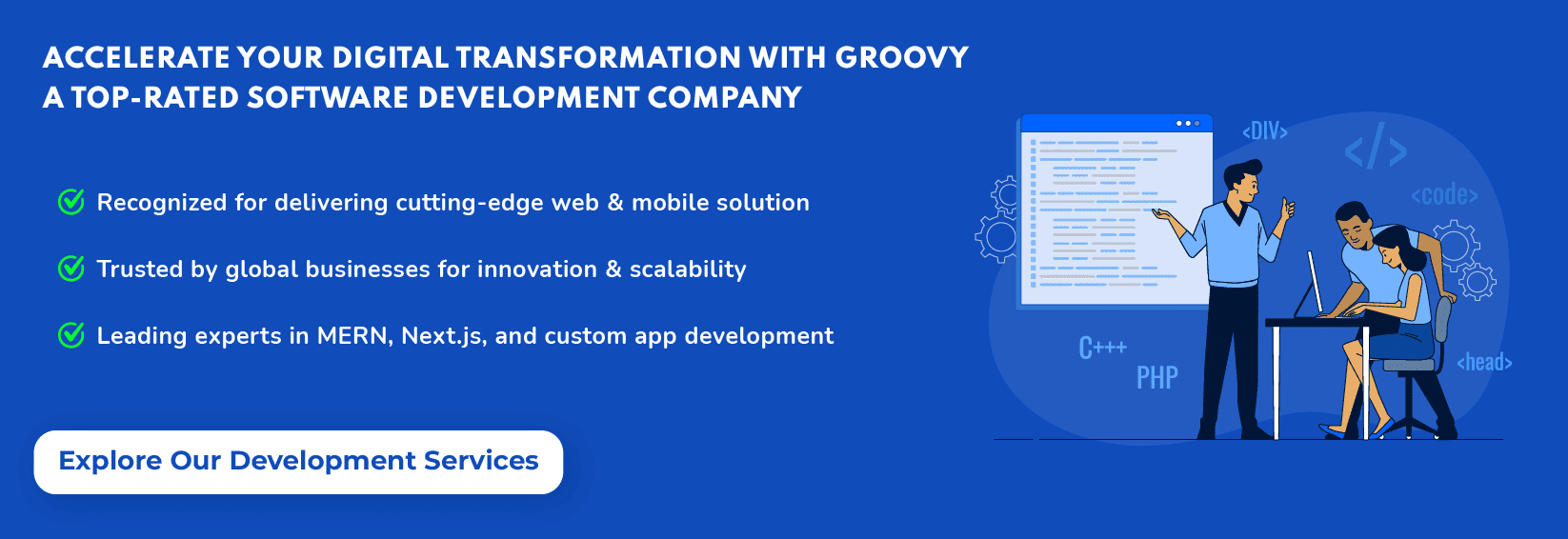How ERP in Manufacturing Transforms Operations & Productivity
Ashok Sachdev
April 28, 2025 10 Views
Quick Summary : ERP in manufacturing creates an operational transformation by bringing together department information in one place while making automatic actions and presenting live performance details. ERP systems provide manufacturers better ways to run operations while making systems more flexible and responsive. An ERP system helps manufacturers manage market needs sooner while decreasing expenses and helping their business grow. Every business needs an ERP system that improves work management to achieve better results. An ERP system lets manufacturing businesses adapt and succeed in the modern industrial market through its advanced tools and cloud-based adaptability.
Modern manufacturing competition demands top production speed, innovative approaches like building prototypes, and accurate data-based choices. Enterprise Resource Planning systems provide efficient solutions for manufacturers to streamline work activities and increase production output. An ERP in manufacturing helps connect all business areas, providing instant data access and lowering data entry mistakes to create better organisational choices.
What is ERP in Manufacturing?
ERP software for manufacturing combines modules that handle all major business operations like stock tracking, making plans, purchasing supplies, managing supply chains, and checking product quality. Manufacturers use this platform to control their systems while quickly meeting market requirements.
Key Benefits of ERP in Manufacturing
Manufacturing companies installing ERP software receive major benefits by improving performance and operational control while lowering expenses.
Centralised Data Management: Every manufacturing department stores its data within one system that merges financial, inventory, production, and personnel information without duplicate entries and improves report trustworthiness.
Real-Time Visibility: Manufacturers can see how their business operates now because ERP shows details about inventory while showing what production machines are doing and tracking order statuses.
Enhanced Efficiency: The system takes over daily work routines such as order processing and scheduling to decrease errors and make the production process run faster.
Improved Collaboration: The system lets departments work better with suppliers and customers through a shared communication space that enhances operational efficiency.
Scalability: The system grows with a company naturally, including new production locations through different markets without extensive system updates.
Regulatory Compliance Support: The system scans and maintains industry standards, plus regulatory requirements, including ISO, OSHA, and environmental standards, so audits stay smooth while lowering legal threats.
Accurate Demand Forecasting: The system uses records and prediction tools to manage product forecasts better to avoid making too much stock or running out of products.
Cost Reduction: The system reveals ways to run processes better, plus shows where inventories can be reduced and supply chain delays exist to help organizations lower costs and increase profits.
Better Customer Service: ERP connects all our systems to provide faster customer service and on-time deliveries, which make our clients happier than before.
Enhanced Quality Control: The system watches product quality throughout production to detect problems early and keep all batches at their highest standards.
Integration with IoT and Smart Devices: Current ERP systems connect to smart tools and Internet of Things devices that show how production equipment works, plus give forecasts before problems occur.
Both integrated features of ERP support businesses to run operations more efficiently and meet market demands while remaining competitive in manufacturing.
Transforming Core Manufacturing Operations
Production Planning and Scheduling
Users optimize their resource usage when they use ERP for production management. The ERP system evaluates market projections and supply sizes to arrange production plans that reduce delays and satisfy customer needs.
Inventory and Supply Chain Management
ERP systems show current product data, preventing manufacturers from having too much or insufficient stock. Manufacturers can view their supply chain better and better manage purchasing deals, suppliers, plus shipments.
Quality Control and Compliance
Quality product production must follow industry requirements at all times. The ERP system helps businesses perform quality inspections during production steps to meet product standards and decrease production problems.
Maintenance and Asset Management
Equipment maintenance has to happen on schedule to avoid stopping production. An ERP system helps companies manage asset maintenance schedules to achieve better results while monitoring performance to avoid sudden breakdowns and increase asset life.
Workforce and Labor Management
Contemporary ERP systems for production businesses help users arrange workforces, record employee presence, and assign tasks based on expertise. Matching worker availability to factory requirements helps companies use their labor force better while protecting employee safety and respecting employment regulations.
Production Costing and Budget Control
ERP helps companies maintain specific expense records within their production processes. Manufacturers can keep track of all app development costs, including direct wages for staff members and overhead expenses. A system that shows current expenditure variances helps businesses maintain costs below targets while adjusting product prices.
Shop Floor Visibility and Monitoring
Shop Floor Visibility depends on how ERP connects IoT devices and sensors to display live plant environment data. The system tracks how equipment works and immediately shows production rates, material use, and worker output. Better visual data lets companies identify new opportunities to optimize operations while setting valuable performance measurements.
Boosting Productivity with ERP
An ERP system makes manufacturing operations more productive through its single application platform. Organizations use these systems to work better and faster for increased production capability. ERP brings these benefits to businesses through its production transformation power.
Automating Processes: The ERP system automatically handles ordinary procedures to decrease record mistakes and lets staff focus on important tasks.
Data-Driven Decisions: Management uses current production and sales data and inventory observations to make fast decisions resulting from accurate forecasting and data analysis.
Resource Optimization: ERP monitors how materials behave with machines and workers to use resources productively and lower production stops plus scrap waste.
Customer Satisfaction: Effective planning and inventory control enable the company to deliver goods sooner, strengthening customer relationships and increasing their happiness.
Workforce Productivity: Workers see only their job role data, plus simple dashboards to keep them productive yet away from system administration work.
Reduced Lead Time: Joining production planning with supply chain activities speeds up the time needed to move orders from start to finish for faster reaction to market requirements.
Compliance and Quality Control: The ERP system helps us maintain product quality by ensuring everyone follows official rules and process standards.
Scalability and Agility: This keeps our quality steady and lowers quality issues that need to be fixed or products that need to be pulled from the market.
The ERP system can adjust to business growth while scaling its processes to match the new products and markets.
The built-in manufacturing features within ERP systems push companies towards increased business success and production efficiency.
Choosing the Best ERP for Manufacturing Companies
A suitable ERP system helps companies enhance operational flow and preserve their market position against competitors. Manufacturing businesses need ERP software that handles their specific production tasks and lets them instantly monitor data and modify system parts to work like their production processes.
The ideal ERP system selection needs to consider the following important factors:
Industry-Specific Features: Select an ERP system specializing in your specific manufacturing type to include discrete assembly, production processes, or mixed-system operation.
Scalability: The software system must handle increasing business requirements when production lines evolve.
Cloud Capabilities: Manufacturers who use ERP services in the cloud achieve better remote access and implement solutions faster at reduced start-up costs.
Ease of Integration: A top ERP system should efficiently connect to existing management systems such as CRM, SCM, and MES.
User-Friendly Interface: The platform shows all data in a user-friendly way, so employees learn quickly and use its features right away.
Customization Options: Users can modify software components to match their unique manufacturing operations, which leads to better production results.
Real-Time Analytics: Monitoring current inventory data, production results, and order progress helps operations managers make better choices immediately.
Strong Vendor Support: Work with vendors offering complete support services for system implementation, training programs, and excellent customer response.
Cost Efficiency: Study the main and hidden costs of purchasing licenses, service contracts, and product edits.
Security and Compliance: Make sure the ERP system meets all requirements from official security and regulatory groups.
Manufacturers trust SAP, Oracle NetSuite, Microsoft Dynamics 365, and Infor because these ERP vendors show reliable performance across multiple plants and deliver effective manufacturing tools. Running test sessions and small product trials helps companies to select the correct ERP platform.
Cloud-Based ERP for Manufacturers
Cloud-based ERP systems have become more popular because they grow with businesses while giving people easy access from any place at lower costs. These solutions let businesses operate from the cloud, leaving behind their physical server, and share updates with partners no matter where they work.

ERP for Discrete and Process Manufacturing
Manufacturing ERP systems provide features that meet the unique requirements of production lines and process-based manufacturing operations.
Discrete Manufacturing:
It joins product parts to create complete units that serve many automotive companies and aerospace makers. ERP software helps in:
- The system controls all manufacturing components, including various assembly elements.
- The system produces and monitors all work orders through every stage of material transformation into finished products.
- The system manages product designs according to special customer requirements.
- It tracks how often machines are used and monitors how fully they operate as our business needs them.
- Quality control checks should be added to all parts of the production process.
- The system makes it easier to serve our customers while running spare parts operations.
Process Manufacturing:
Production teams in food and beverage, chemicals, or healthcare industries follow this specific method. ERP systems support:
- The system manages production groups to maintain reliable results throughout the process.
- Recipe/formula management for scalability and precision.
- Our system tracks the strength of materials and expiration dates to manage final output percentages.
- ERP systems must support proper product tracking for FDA or ISO requirements.
- Managing co-products and by-products effectively.
- The company must test samples thoroughly while checking product quality at each production stage.
ERP systems help manufacturers control operations of discrete and process items while improving productivity and flexibility throughout multiple departments.
ERP System Implementation in Manufacturing
Planning and implementation must be carefully considered to implement an ERP system successfully. Key steps include:
- Requirement Analysis: Turning the business needs into a need-defining and quality objective process.
- Vendor Selection: Features, Scalability, and Support.
- Customization and Integration: Tailoring the ERP systems to certain workflows and integration with already existing tools.
- Training and Change Management: This encompasses training staff and changing the Management of the old system to a new one.
- Data Migration and Testing: Ensuring that legacy data is not cleaned, validated, or migrated in a way that results in a loss. Rigorous testing: unit, system, and user (acceptable) before going live helps to address bugs and functionality issues.
- Phased Rollout Strategy: The system is implemented in stages (i.e., critical modules first) to minimize risks and allow the teams to adapt before deploying the system fully.
- Post-Implementation Support: This support includes direct technical support, user feedback channels, and regular system updates for continuous improvement and achieving long-term success.
The Role of Custom ERP Development
Migration isn’t just about switching archetypes; it is a chance to better modernize and optimize your whole ERP ecosystem through replacing archetypes vertically and horizontally. Cue the importance of ERP app development in this instance. ERP development can be smart if businesses partner with ERP development specialists.
- Tailor Modules to Their Unique Workflows: It allows you to customize features and tools that help keep them on par with the real-world operational needs.
- Develop Fiori-Based Apps for Improved UI/UX: It will increase employee engagement and ease of system use.
- Integrate Third-Party Tools for Enhanced Functionality: Synchronize with CRM, eCommerce, or MES systems.
- Create Dashboards for Real-Time KPIs and Performance Analytics: Improve visibility and performance tracking.
- Enable Role-Based Access and Security Customization: Building flexible access control models that control user group access to different data to protect sensitive business data across business units.
- Automate Industry-Specific Workflows: Take a step in the right direction towards making routine tasks leaner and manual interventions minimal for your area of business, whether you are in discrete manufacturing, pharmaceuticals, or logistics.
- Support Multi-Language and Multi-Currency Operations: ERP customisation helps global businesses localize their systems and adapt systems to regional languages, tax systems, and currencies, making them compliant and operationally fluent.
- Facilitate Agile Development and Iterative Upgrades: Partnering with a custom app development company allows flexibility in adapting the ERP system as it grows with business growth and technology advancements.
Organizations that choose the right custom app development company benefit from migrating while innovating and obtaining much higher investment returns.
Measuring the Impact of ERP Implementation
Manufacturers must set up productivity measures to ensure ERP systems produce results.
Production Efficiency: Monitoring output versus capacity.
Inventory Turnover Ratio: The inventory turnover ratio shows if and when businesses consume their stock supplies.
Order Fulfillment Rate: Our system tracks and verifies when orders reach the right place at the appointed time.
Downtime Reduction: Assessing the impact on machine availability and uptime.
Testing these performance measures assists organizations in both improving their ERP system and making progress towards better results.
Conclusion
ERP systems have upgraded production efficiency for manufacturers through integrated systems and easy access to data, which makes their operations better. Companies producing goods through both methods strongly depend on adopting an effective ERP system to develop their operations. Manufacturers who solve ERP implementation problems and customize ERP solutions will benefit most from their operations.
Written by: Ashok Sachdev
Ashok Sachdev is the Project Manager at Groovy Web who began his professional career as a programmer at the young age of 17. Ever since then he is actively growing, learning new things, and adapting to new roles and responsibilities at every step. Aside from being an app developer, he is highly admired for his project management skills by his clients.
Frequently Asked Questions
We hope these clear your doubts, but if you still have any questions, then feel free to write us on hello@groovyweb.coWhat important part does real-time data play in manufacturing ERP systems?
With an ERP system, manufacturers can view and assess inventory status and order progression, plus these production line duties, at any moment. The instant view of operations empowers fast decisions and reactions to problems to forecast results better while boosting productivity and user happiness.
Can ERP systems help reduce production costs?
ERP systems help save resources by finding performance gaps, streamlining tasks, reducing unnecessary actions, and scheduling supplies better. The system helps better schedule work while improving purchasing activities, which decreases production downtime and lowers business costs.
How does ERP support production planning in manufacturing?
ERP helps organizations manage their production better by combining their available resources and workers to meet customer requirements. The system links supply chain insights with future expectations to establish correct manufacturing plans, which prevent delays and keep products on time.
Is cloud-based ERP beneficial for manufacturers?
Absolutely. Manufacturers can access ERP data from anywhere through their cloud system with ease. Thanks to lower costs on infrastructure and simpler updates, manufacturers can strengthen their data security as this solution helps them stay competitive in today's changing market.
Related Blog

Rahul Motwani
Top JavaScript Frameworks Used to Develop Mobile & Web App in 2023
Mobile App Development 14 Nov 2024 19 min read
Rahul Motwani
How to Build an App Like Airbnb? Top 10 Apps Like Airbnb for Holidays
Mobile App Development 26 Feb 2025 14 min read
Sagar Patel
Next.js vs React: Which One Should You Choose?
Web App Development 11 Dec 2024 13 min readSign up for the free Newsletter
For exclusive strategies not found on the blog
